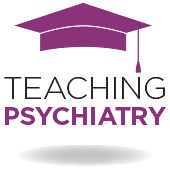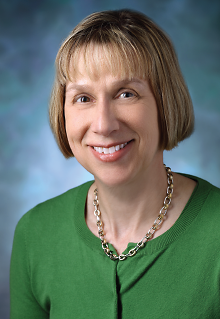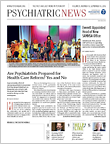The physician who is also a researcher is pursuing what some might say is a select career path. And the physician who is also an educator could be said to be following a road less traveled.
In that case, the physician-educator whose scholarly interest is medical education research must be a rare individual indeed.
And yet it’s an increasingly necessary endeavor—research that seeks to answer the question: How can the education of aspiring physicians be improved?
“More and more we know it is important to take a scholarly approach to the work we do,” said Susan Lehmann, M.D., the psychiatry clerkship director and associate professor in the Department of Psychiatry and Behavioral Sciences at Johns Hopkins University School of Medicine. “No one is born knowing how to—say—evaluate a curriculum. But the way we improve is to evaluate our outcomes in a systematic way. We want to know, what are the best practices for teaching? How do we know the interventions we use are the best we can do?
“That kind of information is important now to medical schools that have to report to the stakeholders in medical education,” Lehmann told Psychiatric News. “And for the medical educator, scholarly accomplishments are a metric for promotion.”
Lehmann is co-administrator (along with Lisa Fore-Arcand, Ed.D.) of the Education Scholars Program—a program of the Association of Directors of Medical School Education in Psychiatry (ADMSEP). Fore-Arcand is an associate professor and education coordinator and assistant director of the psychiatry clerkship at the Eastern Virginia Medical School.
The ADMSEP Education Scholars Program was established to provide participants with the foundational knowledge and mentorship necessary for pursuing scholarly activities in medical student education. The first cohort of participants graduated in June 2014, and the second graduated this past June.
Scholars are expected to develop and complete a research project. Each scholar who completes the program is awarded a Certificate of Excellence in Educational Scholarship.
The Scholars Program is a two-year program of half-day structured workshops and didactics, specifically for Educational Scholar participants, at the beginning of each ADMSEP annual meeting. Additionally, scholars participate in conference call seminars three times a year; the conference calls are led by ADMSEP educators and focus on topics related to the implementation of each scholar’s individual project. Scholars also work with a local mentor from their own institution whom they have identified, as well as with a senior ADMSEP mentor. At the third ADMSEP annual meeting after they have entered the program, scholars present their results from the preceding two years’ work.
Brenda Roman, M.D., past president of ADMSEP, said the Scholars Program was begun in an effort to boost faculty development among members. “The scholars program is geared to early career academic psychiatrists interested in medical student education,” she told Psychiatric News.
Roman and Lehmann said that a strength of the program is that it is a relatively inexpensive endeavor—the cost of the program is $500—and leans heavily on mentorship to help medical educators in psychiatry develop as research scholars.
“The structured didactic workshops at the two annual meetings provide scholars with foundational knowledge—how to come up with a good research question, how to develop an effective survey,” Lehmann said. “The longitudinal elements of the program—the conference calls with ADMSEP experts—guide the scholar in the implementation of their project. The work with the local mentor and the senior ADMSEP mentor help with big-picture questions about research and medical education. These mentorships have resulted in terrific scholarly relationships.”
Educators apply for the program by submitting a CV and their ideas for scholarship. Completed projects include research by scholar Matthew Goldenberg, M.D., M.Sc., the interim psychiatry clerkship director at Yale University, on factors that influence medical student choice of psychiatry as a career (
Psychiatric News,
September 2).
The June 2015 issue of Academic Psychiatry included a study by former program scholar Carol Ping Tsao, M.D., titled “Medical Student Communication Skills and Specialty Choice.” Ping Tsao and her colleagues Deborah Simpson, M.D., and Robert Treat, M.D., looked at whether communication skills differ between medical students entering person-oriented specialties (psychiatry, family medicine, pediatrics) and those entering technique- or procedure-oriented specialties.
They analyzed communication ratings by clerkship preceptors on institutionally required end-of-clerkship medical student performance evaluation forms from the 2011-2012 academic year (class of 2013).
Their results were surprising, perhaps even counterintuitive. There was no significant difference in mean communication scores for medical students who entered person-oriented versus technique-oriented specialties. But the study revealed something important: raters from technique-oriented clerkships offered higher communication score ratings than did raters from person-oriented clerkships, and significantly higher for those students entering technique-oriented specialties.
“[F]aculty from technique-oriented clerkships rated students entering technique-oriented specialties more favorably,” the researchers stated. “Could there be unstated differences in the type and degree of communication expected for person versus technique-oriented specialties that can account for this finding?”
It’s a striking example of the adage that you don’t know what you don’t know—and you won’t know until you do some research.
“The authors did not find what they expected to find in terms of communication skill and specialty choice,” Lehmann said. “The issue turned out to be more complicated than they had originally thought, and the study revealed something unexpected in that it suggested possible bias on the part of faculty rating the communication skills of students going into their type of specialty. The authors also reflected that the measurement tool they used to assess communication skills may have been lacking, too.
“The study suggested the need for further follow up,” Lehmann continued. “It’s a great example of how much is learned by a rigorous and systematic scholarly approach to a question. Sometimes the answer to your answer is not as straightforward as you thought, and you learn that to understand the problem better, you need to have better assessment tools and consider wider sources of bias. This is such an important lesson for all of us as medical educators. As in any field, systematic study of the work we do will lead to better understandings of the educational interventions we do with students and will help all of us become better educators.” ■
More information about the ADMSEP Education Scholars Program can be accessed
here.


